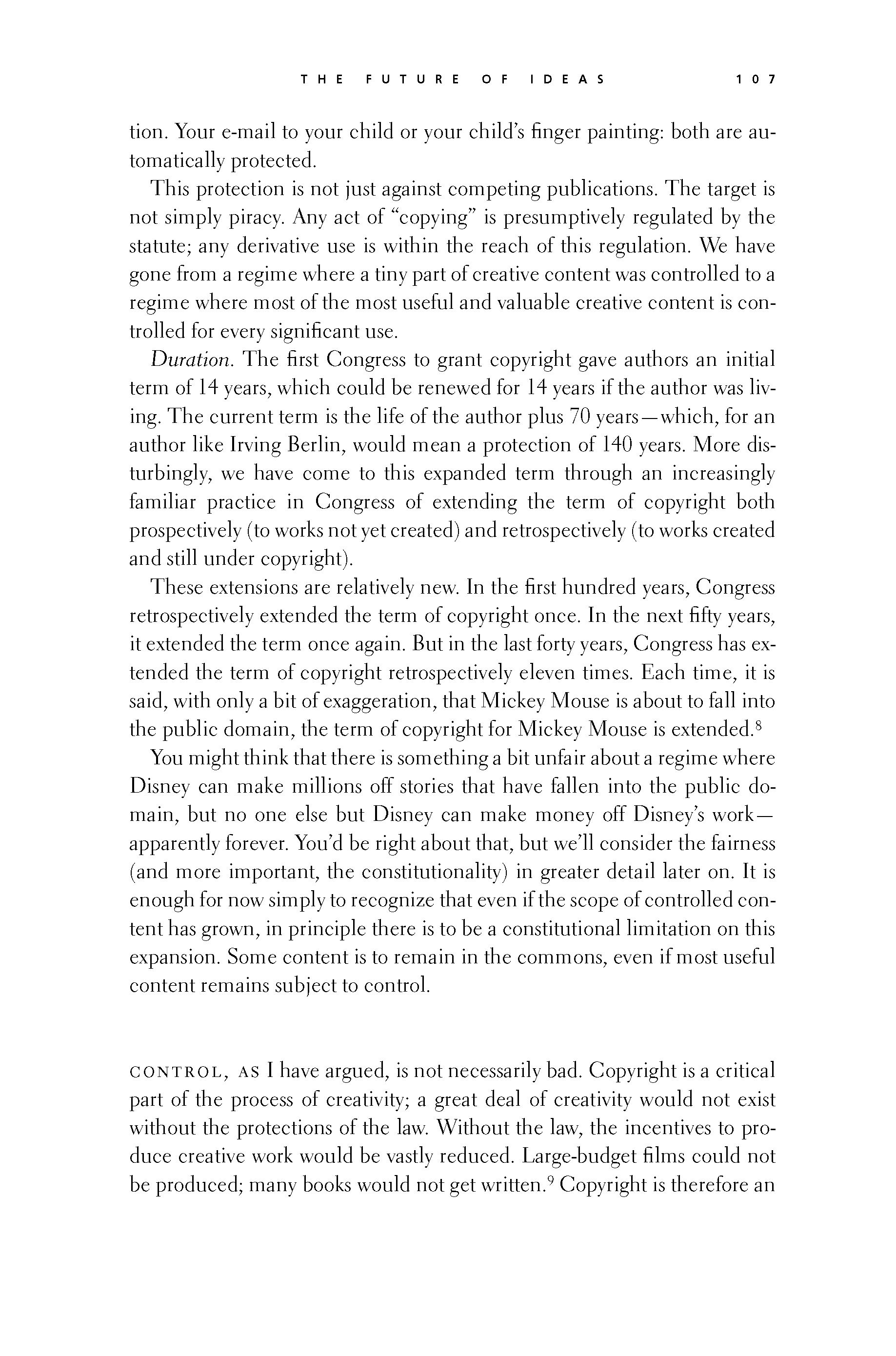 p106 _
-chap- _
toc-1 _
p107w _
toc-2 _
+chap+ _
p108
p106 _
-chap- _
toc-1 _
p107w _
toc-2 _
+chap+ _
p108
tion. Your e-mail to your child or your child's finger painting: both are au-
tomatically protected.
This protection is not just against competing publications. The target is
not simply piracy. Any act of "copying" is presumptively regulated by the
statute; any derivative use is within the reach of this regulation. We have
gone from a regime where a tiny part of creative content was controlled to a
regime where most of the most useful and valuable creative content is con-
trolled for every significant use.
_Duration._ The first Congress to grant copyright gave authors an initial
term of 14 years, which could be renewed for 14 years if the author was liv-
ing. The current term is the life of the author plus 70 years -- which, for an
author like Irving Berlin, would mean a protection of 140 years. More dis-
turbingly, we have come to this expanded term through an increasingly
familiar practice in Congress of extending the term of copyright both
prospectively (to works not yet created) and retrospectively (to works created
and still under copyright).
These extensions are relatively new. In the first hundred years, Congress
retrospectively extended the term of copyright once. In the next fifty years,
it extended the term once again. But in the last forty years, Congress has ex-
tended the term of copyright retrospectively eleven times. Each time, it is
said, with only a bit of exaggeration, that Mickey Mouse is about to fall into
the public domain, the term of copyright for Mickey Mouse is extended.[7-8]
You might think that there is something a bit unfair about a regime where
Disney can make millions off stories that have fallen into the public do-
main, but no one else but Disney can make money off Disney's work --
apparently forever. You'd be right about that, but we'll consider the fairness
(and more important, the constitutionality) in greater detail later on. It is
enough for now simply to recognize that even if the scope of controlled con-
tent has grown, in principle there is to be a constitutional limitation on this
expansion. Some content is to remain in the commons, even if most useful
content remains subject to control.
///\\\
Control, as I have argued, is not necessarily bad. Copyright is a critical
part of the process of creativity; a great deal of creativity would not exist
without the protections of the law. Without the law, the incentives to pro-
duce creative work would be vastly reduced. Large-budget films could not
be produced; many books would not get written.[7-9] Copyright is therefore an
[[107]]
p106 _
-chap- _
toc-1 _
p107w _
toc-2 _
+chap+ _
p108